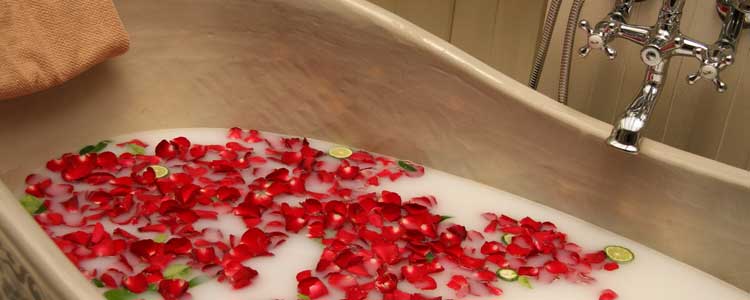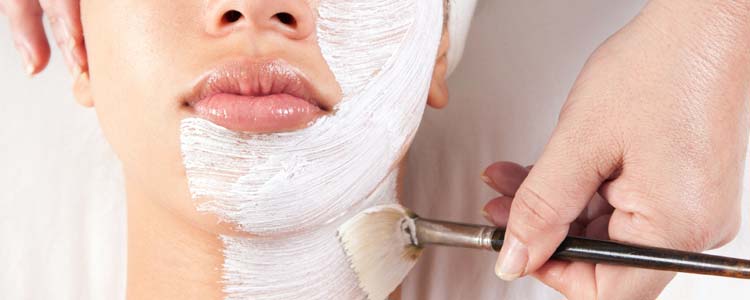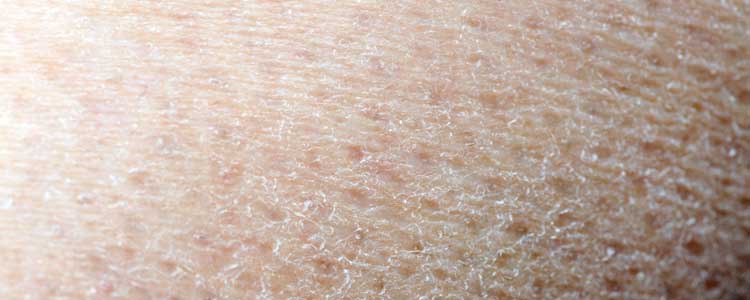Having dry skin that is often painful and/or itchy is no fun at all. Wintertime makes it worse and blowing money on pricey over the counter treatments frequently only have the effect of emptying out your wallet. What exactly are you able to do to soothe that splitting skin of yours? Luckily, there are quite a few dry skin home remedies for you to try out, and we’re going to cover the most popular ones below.
5 Bath Remedies
 Baking Soda
Baking Soda
Add one cup baking soda into a bathtub of hot water. Soak for half an hour to an hour. Make sure you either air dry or pat yourself dry afterward.
Cornstarch
You may be thinking this can exclusively be utilized to thicken your gravy, however, it’s additionally beneficial is in relieving itchy, dry skin. Scatter a smattering in the tub and get your soak on.
Sea Salt
It has been proposed by many that putting a cup of sea salt into a bath of warmer water can help to nourish your skin. Just make sure you soak in it for 20-30 minutes. Follow up your bath using an oil-based moisturizer for optimum results. For those who have open skin (cuts, wounds, etc) don’t use sea salt as it can burn quite a bit.
Oatmeal
Most people know about this one. Adding some oatmeal into a bath will soothe your skin. It also has been employed as a folk treatment for healing dry, chapped fingers. Just rub your fingers with moist oatmeal as an alternative to soap.
Chilly Water
Cool showers or baths and even ice bags might be an immediate relief for the itchy skin. Avoid hot water, though. Briefly, hotter water feels great, but nonetheless, it frequently leaves you feeling itchier afterward. Not to mention that it makes your skin even more dried out.
9 Topical Treatments for Dry Skin

Apply Some Oil
Applying moisturizer to your skin produces a seal that stops moisture from escaping. Try an oil-based moisturizer, like baby oil, for incredibly dry skin since it continues to keep your skin moisturized longer than other kinds of moisturizers. Natural oils, including jojoba, avocado, and almond, additionally help keep dry skin hydrated. To get the best results, apply oil onto your skin immediately after washing. Pat your skin dry using a towel but don’t completely dry off. Apply oil liberally to keep any moisture in your skin, which will help to keep your skin from becoming dry too fast. You can also try coating yourself with vegetable, sunflower, or peanut oil.
Coconut Oil
An overnight spot treatment on problem areas with coconut oil may result in quite a bit of progress by the morning. By bathing before bed and applying coconut oil right after, you can awaken with much softer, smoother skin.
Vinegar
Many use this treatment for chapped fingers: Wash and dry your hands completely, then apply vinegar.
Lemon Juice
Lemon juice might be immediately applied on itchy skin to alleviate the problem. Warning: if you use it on open skin it will burn. A lot.
Honey
Honey assists in locking in the wetness, has anti-oxidant and antimicrobial properties, and that makes it a popular ingredient in several over the counter skin care items. Warm 2 teaspoons of honey and use it on your epidermis while warm. Leave it on for half an hour, then wash it away. You’ll be surprised at how well this works.
Aloe Vera
Aloe vera gel has therapeutic, calming and moisturizing qualities when utilized topically on incredibly dry skin. After a soak in the tub, slice a section of a fresh aloe leaf off, squeeze all of the gel from it, then apply on any dry areas. You won’t only moisturize your skin, it’ll also create a protecting layer that may keep various impurities from being able to go into your pores. It might make your skin feel tighter despite the fact that it provides great hydration to your skin. If that bothers you, you should moisturize afterward.
Apple Cider Vinegar
Dot apple cider vinegar on the place that is dry using a cotton ball. If you’re encountering itching and dryness all over, include a couple of cups of apple cider vinegar with your bath water and soak for half an hour.
Milk and Honey
Milk has anti-inflammatory properties that frequently eliminate the itch from a person’s itchy skin. A milk bath once a month can also assist one in feeling better.
Beeswax
A mixture of olive oil, honey, and beeswax can offer a major advantage to individuals struggling with eczema or psoriasis. Mix equal components of uncooked (unprocessed) honey, beeswax, and olive oil. Melt the beeswax in a tiny pan over low heat, stirring periodically. This will allow you to mix them all together. While the combination remains warm, pour it into an air tight container and keep this in the fridge. Apply this to the skin as needed.
6 Actions to Take
 Be Cool
Be Cool
Take luke-warm or colder showers. If you prefer the hotter types of showers then this isn’t going to sound so great, but your skin is going to feel better. Hot water pulls out our epidermis’s precious oils. By using cooler showers and baths, you keep those oils in.
Drink Plenty of Water
Drink a lot of water to help keep your skin hydrated. Furthermore, water really helps to eliminate toxins when you go to the bathroom. Excessive toxin amounts in the human anatomy may produce itching and discomfort.
Be Picky About Soap
Soap with tons of fresh scents may appear to be fine, and it smells great, too, but it might make your epidermis much worse for wear. Try to get more natural soaps if you can. Liquid soaps are milder than bars of soaps. Also, soaps that contain oil or fat are going to be better for your skin.
Moisturize After Bathing
Applying cream on a damp epidermis is really one of the best options for keeping your skin feeling nice and smooth. When you’re done in the tub or shower, pat yourself dry, do not rub, but only enough so that you don’t leave a damp trail behind you. After that rub your chosen lotion, cream, or oil on while you’ve still got drops of water on your skin. This keeps your skin moist for much longer throughout the day.
Ditch the Alcohol
When you drink alcohol your body removes the moisture from your skin to keep itself hydrated. Restrict yourself to 2 ounces a day or less to maintain healthy skin. You should also avoid using any cleaning products that are alcohol based as they also dry your skin further.
Sun Protection
Well, just like sunlight evaporates wetness from your water-soaked sneakers, it evaporates moisture out of your skin. A little of that evaporation is good for you (perspiration evaporating keeps you from feeling too hot when you workout). When there’s too much of it, though, it can be a problem. In the event that you spend a lot of time in sunlight you should safeguard your skin by wearing sunblock and moisturizing creams.
5 Herbs for Dry Skin
 Chamomile
Chamomile
The wellbeing of our liver is revealed in how healthy our skin is. Chamomile is an herb, and it’s possible to use it internally to aid the kidneys, liver, and gastrointestinal system. Wastes will soon be processed the way that they were designed to be – through proper removal – and not through your skin, when these organs are wholesome and functioning.
Echinacea
Scientific studies validate that plant infusions are anti inflammatory and hasten epidermis repair. Chemical parts of echinacea additionally shield collagen (the protein that boosts skin strength) from free-radical damage. Echinacea even offers some action against fungi and bacteria.
Thyme
Thyme includes large quantities of the unstable constituent thymol. This herb has anesthetic and anti inflammatory properties. It numbs the itch while decreasing some of the inflammation that comes from scratching. Soak a towel in thyme tea and apply it to any affected regions.
Green Tea
Green tea features antioxidant flavonoids that provide protection against harm from ultra violet light (sunburn, skin aging, skin cancer). You can both drink it in tea form and topically apply products that use it to help your skin.
Licorice Root
Licorice root’s benefits include soothing capabilities and anti inflammatory substances. One study found that a compound in licorice enhanced the activity of external steroids used on psoriasis. A research piece done with people who have rosacea, a disorder marked by regular redness and pimples, discovered a special licorice root infusion reduced skin inflammation.
Final Words
Once you’ve completed any of these treatments a few times, you need to start exfoliating dead cells. Don’t use any exfoliator until your skin has gotten somewhat better, else it can get much worse! Don’t do this on any open skin, either.

